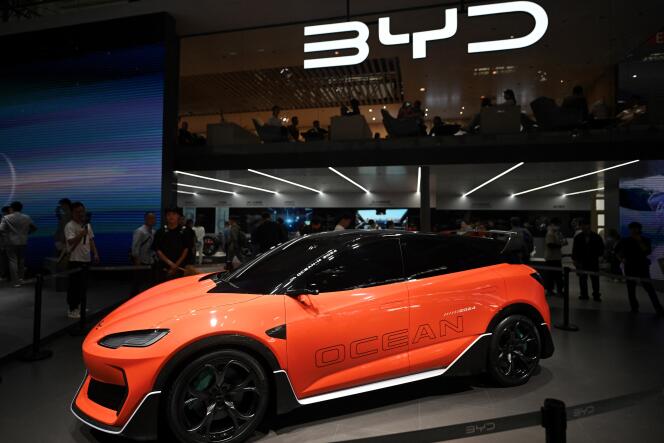
It's a Peugeot tradition. At this historic company, founded in the 18th century near the Swiss and German borders, they've always been wary of anything coming from the East. The great concern of Jacques Calvet (1931-2020), PSA's emblematic boss from 1984 to 1997, was resistance to the Japanese incursion. His distant successor, Carlos Tavares, is battling the surge from China. Not a day goes by without him warning about the "red carpet" Europe is rolling out for Chinese automakers.
His words echo Calvet's, who criticized Europe's inability to erect barriers high enough to contain the Japanese salvo. Europe negotiated sales quotas with the Japanese. In return, Japan set up factories in the UK, Spain and even France. French, German and Italian manufacturers resisted, modernized and largely offshored. They survived.
Will the same be true today, as hundreds of thousands of Chinese cars pile into the Belgian port of Antwerp, like horsemen before a battle? The danger is just as existential as in 1990, but of a different nature. Back then, the revolution was productive. Japanese industry was far ahead in terms of production processes, productivity and manufacturing quality.
Today, the revolution is technological. The climate threat has led governments to accelerate the transition from internal combustion engines to electric cars. In less than five years, the global market for electric cars, which accounted for 2% of sales in 2018, has increased sixfold. It should exceed 20% by 2024, according to the International Energy Agency (IEA). Yet these vehicles are totally new objects that have led to two changes European manufacturers have not sufficiently anticipated.
Tariff barriers
The first is the arrival of new players from the world of electronics, outmastering them in the science of algorithms and semiconductors. The most emblematic of these are Tesla and China's BYD. Tesla grew out of the California start-up scene, from which its CEO, Elon Musk, emerged. BYD is a manufacturer of telephone batteries based in Shenzhen, China's "Silicon Valley," just outside Hong Kong. Today, more than half the value of a car is made up of its batteries, electric motors and software. European attempts by Volkswagen, Stellantis and Renault in these areas are still in their infancy.
The second profound change compared to the late-20th-century Japanese offensive is that the Chinese have anticipated this changeover, setting up a complete industry, from ore refining to the factory. Today, no battery in the world can be produced without Chinese components. For example, the country holds 90% of the graphite market for the anodes essential to their operation.
You have 18.25% of this article left to read. The rest is for subscribers only.